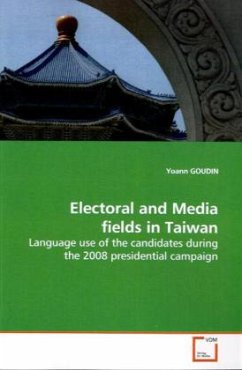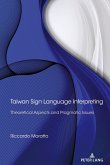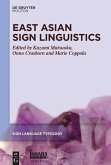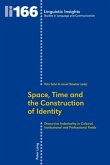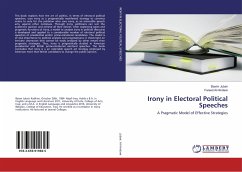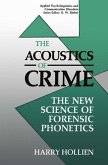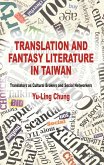In which contemporary democracy do presidential
candidates have to use 13 different local languages?
The answer is: Taiwan. The question that
follows is why it is so, and how are these languages
shared through time and space during the
presidential campaign in the most vibrant democracy
in Asia. The situation is that this prolific
language use is dichotomous according to whom the
candidates performed their speeches. Indeed, these
13 languages were almost exclusively used when the
candidates were speaking to the voters, whereas
Mandarin Chinese as the only official language of
the Republic of China was used almost without
exception when the addressee was a journalist.
This study, at the borders of sociolinguistics and
sociology of language, which is founded upon an
ethnographical approach of the presidential campaign
candidates have to use 13 different local languages?
The answer is: Taiwan. The question that
follows is why it is so, and how are these languages
shared through time and space during the
presidential campaign in the most vibrant democracy
in Asia. The situation is that this prolific
language use is dichotomous according to whom the
candidates performed their speeches. Indeed, these
13 languages were almost exclusively used when the
candidates were speaking to the voters, whereas
Mandarin Chinese as the only official language of
the Republic of China was used almost without
exception when the addressee was a journalist.
This study, at the borders of sociolinguistics and
sociology of language, which is founded upon an
ethnographical approach of the presidential campaign

